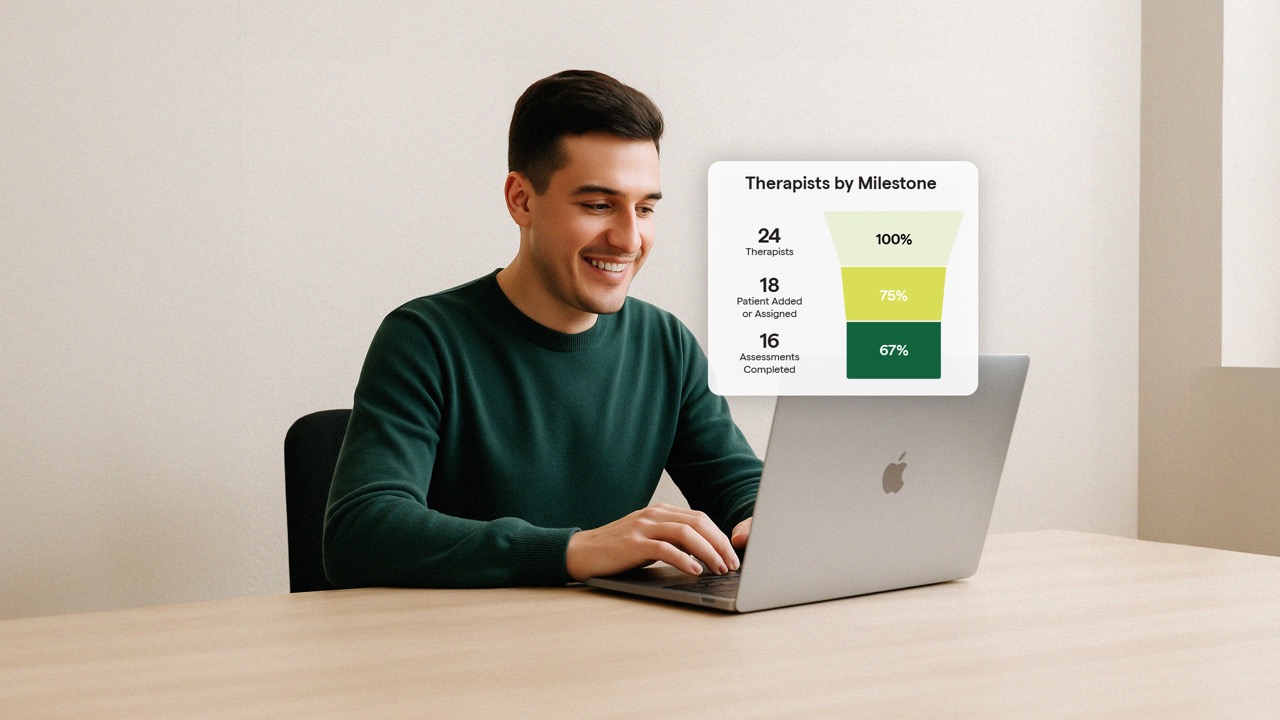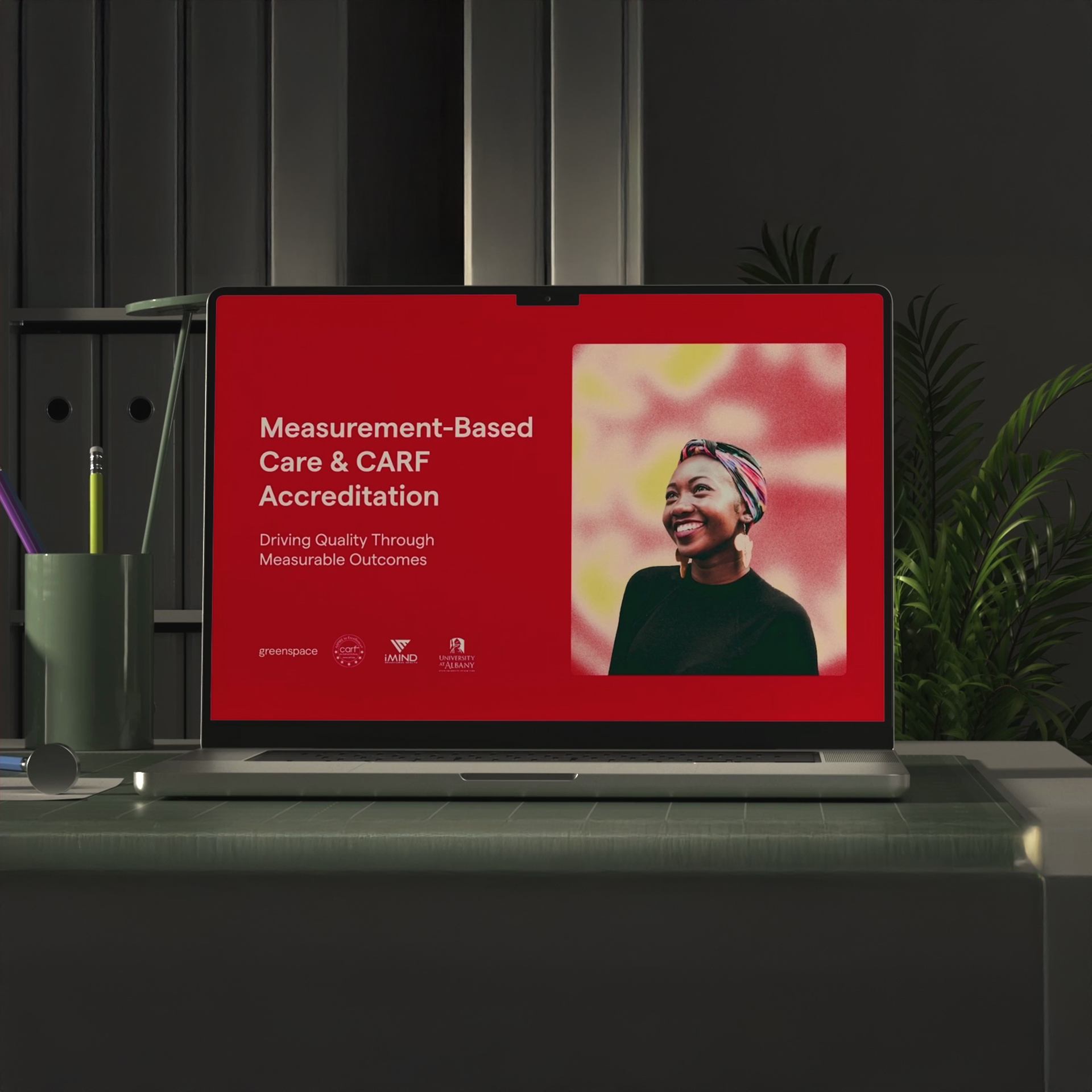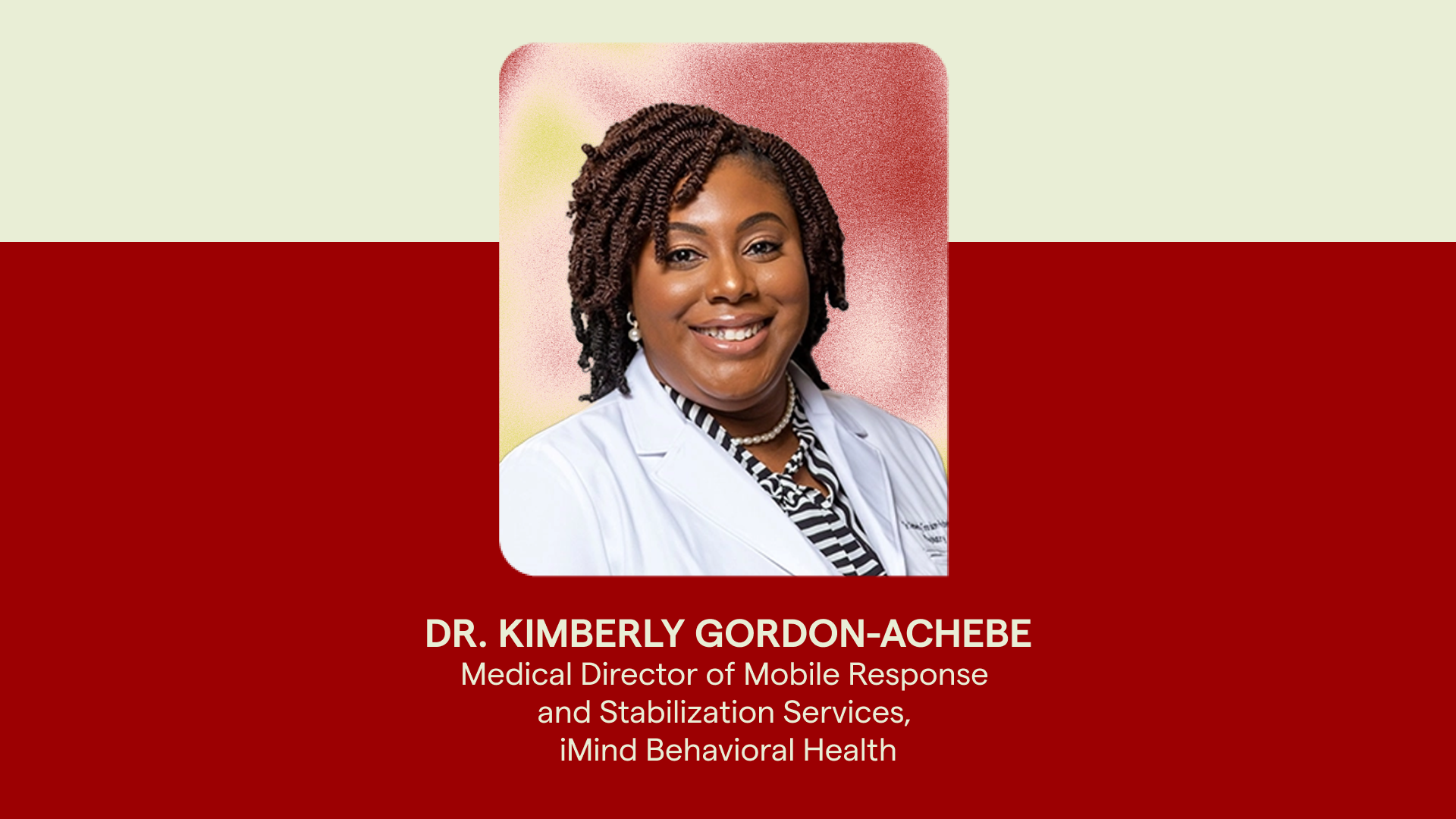
Our upcoming educational panel will feature the Yale Measurement-Based Care Collaborative (YMBCC), a group of four dedicated researchers and psychologists who have devoted their careers to advancing the adoption and practice of Measurement-Based Care (MBC). Their work focuses on developing tools and educational content that help clinical teams effectively adopt MBC, thereby enhancing client outcomes and the overall quality of care. As MBC adoption continues to accelerate across North America, the YMBCC has expanded its work and research to explore how this evidence-based practice impacts various demographics, with the aim of fostering increasingly equitable care for underserved populations.
At Greenspace, driving care equity through MBC is a critical topic we’ve been focused on in collaboration with our partners, including organizations like Encompass Community Services, whose primary motivation for implementing MBC was to drive more equitable services. We also work closely with many clinical teams that offer programs to underserved and underrepresented communities, making it essential for us to engage in this conversation and ensure that MBC facilitates equitable care.
As part of these efforts, we wanted to highlight some important insights from a recent YMBCC publication, ‘Leveraging Measurement-Based Care to Reduce Mental Health Treatment Disparities for Populations of Color.’ This article outlines four ways that MBC may be able to address some of the disparities in mental health treatment for clients of colour, and serves as a good reminder of the impact of the MBC process and client/clinician collaboration in driving more equitable care.

Before we dive into the article and its features, it’s crucial to consider the YMBCC’s disclaimer, which emphasizes the importance of culturally sensitive care and encourages clinicians to recognize their differences with clients and address potential biases:
“For any clinical practice, MBC or other, to positively impact disparities, it is essential that clinicians engaging in mental health treatment (1) have foundational competencies in culturally-responsive care; and (2) are open to honestly engaging in self-reflection around assumptions and biases.“
With that in mind, let’s explore these impactful MBC features in more detail:
MBC Feature 1: Optimize Treatment Quality via Personalization and Proactive Modifications
Evidence shows that there is a gap in care quality within communities of colour, and this group may not experience the same levels of outcome improvement as white populations. The YMBCC believes that MBC can help close this gap by ensuring that lack of progress or potential treatment non-response is identified early, allowing care plans to be adjusted or tailored accordingly. MBC helps providers ensure treatment is client-centred and customized to each individual, which is critical to addressing the lack of treatment fit that may impact these groups and driving higher outcome improvement. Dr. Elizabeth Connors of the YMBCC shares some of the research demonstrating how MBC can be effectively leveraged to drive more significant symptom change in treatment:
MBC Feature 2: Promote Mental Health Literacy
At Greenspace, we often highlight how MBC helps clients develop a shared language with their provider to better communicate their mental health challenges and their care experience. Mental health literacy is a common barrier to behavioural health service access amongst communities of colour. Beyond spoken language itself, this can include cultural factors—which may impact how people experience and interpret mental health symptoms—or comfortability discussing mental health generally.
Patient-reported outcome measures (PROMs) provide an extremely effective way for clients and their clinicians to orient themselves with what the client is experiencing. From there, the provider and the client can get curious about the results, explore anything that might not be aligned with what the client has communicated in session, and address anything else that stands out in their MBC data. This is also a great opportunity to encourage clients to identify any elements of these measures that aren’t aligning with their experience as a person of colour, which can spark meaningful conversations and improve the provider’s understanding of the client. Dr. Jessica Barber of the YMBCC explains how critical the rational for MBC can be to insuring clients understand how to make the most of the measures for their own self-understanding:
It’s also recommended that providers include culturally sensitive or individualized measures alongside standardized ones, as these have been developed, designed, and validated for the communities they’re intended to serve and are more likely to accurately represent their experiences.
MBC Feature 3: Improve Alliance via Enhanced Communication and Collaborative Decision-Making
People of colour often report feeling like their provider is not aligned with or understanding of their experiences. The Collaborative recommends using the ‘Collect, Share, Act’ model of MBC, which encourages active feedback, collaboration throughout the care process, and can help promote higher alliance and improved client-clinician understanding. This is especially impactful, as research shows that therapeutic alliance is one of the greatest predictors of positive change throughout the care process. Dr. Sandy Resnick of the YMBCC defines and explains the impact of each element of ‘Collect, Share, Act’:
Regardless of an individual’s background, experience with mental health treatment, level of mental health education, or family and community stigma, MBC can help ensure that people in care have the language and knowledge they need to better understand their mental health, share their challenges, and advocate for themselves throughout care. All of these factors enhance the therapeutic alliance and ensure care is tailored to each individual’s specific needs and challenges.
MBC Feature 4: Transparency Improves Satisfaction with Care and Treatment Retention
MBC creates a more transparent treatment environment, as clients and their provider can clearly see the results, which demonstrate where the client is at and how they’re progressing throughout treatment.
PROMs make it easy to identify specific challenges or areas of concern to address in session, so both the client and provider can collaborate to ensure they’re working towards the same goals. The process of MBC also requires consistent client feedback, empowering clients to regularly advocate for themselves, raise any concerns or questions, and ultimately ensure their voice remains at the heart of care. These factors are critical to creating an environment of trust and eliminating any power dynamics that may impact clients with different cultural norms or history.
Dr. Sandy Resnick and Dr. Amber Childs of the YMBCC explain how giving clients transparent access to their results can be deeply empowering for them and is a risk-free way to offer more transparency throughout the care process:
Wrapping up: Directions for Future Research
The YMBCC encourages more research to examine how MBC can address disparities in mental health treatment quality and effectiveness for people of colour. Beyond the features mentioned above, this Point of View acknowledges that MBC must continually evolve and adapt to better serve these traditionally underserved communities. However, there is great promise in the value that MBC can bring to the quality of care available to populations of colour and in increasing the level of clinical improvement they experience.
To learn more from the four researchers and psychologists who founded the Yale MBCC, register for our next educational session, taking place on Thursday, September 26th, from 1-2 pm EDT: Optimizing MBC in Practice: Interactive Breakout Sessions with the Yale MBC Collaborative.
In this special edition panel session, attendees will join specific breakout rooms tailored to the unique needs of either clinical leaders or clinicians, offering a personalized learning experience. Attendees will work closely with the Yale MBCC team in an intimate setting, gaining valuable insights and practical knowledge to apply in their clinical settings. Don’t miss out on this opportunity to collaborate directly with and learn from the Yale MBCC team—register here.












